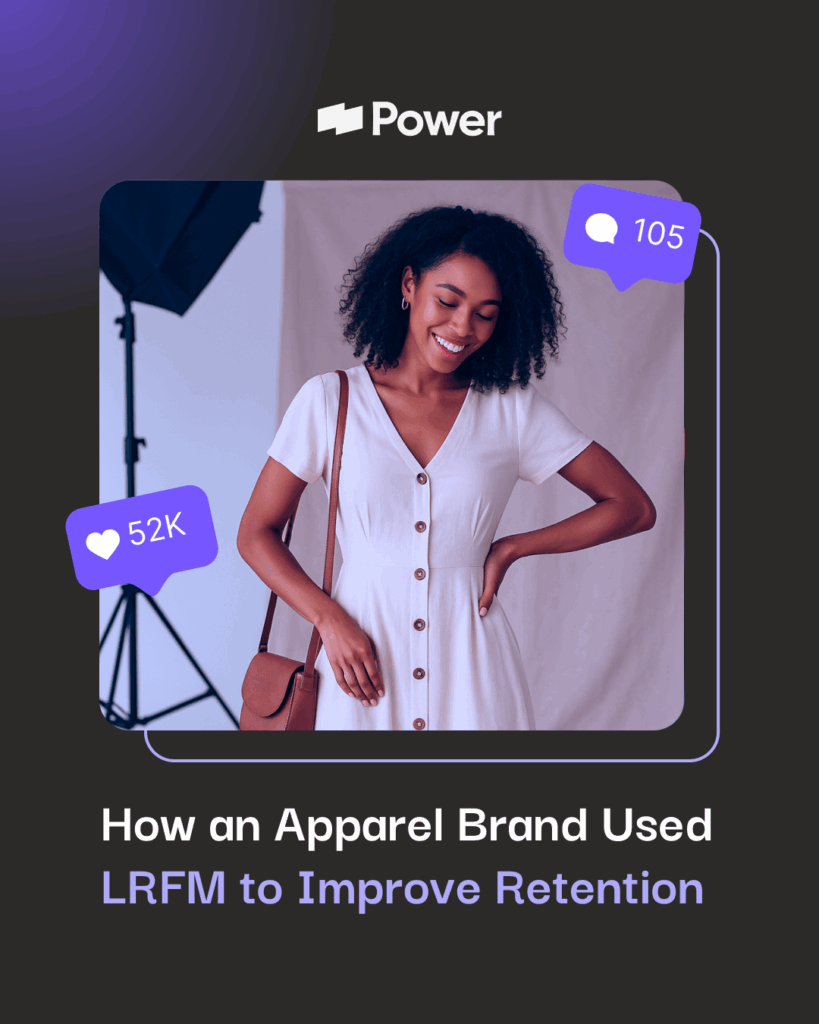7 Unexpected Industries Now Working with Influencers

Influencer marketing initially started in the fashion, beauty, and food industry. When customers wanted to buy a new outfit or makeup line, influencers allowed a way to try it on vicariously. Similar to food products, influencers leveraged the trust they built with their audience to confirm whether something was worth buying.
For businesses, influencer marketing presented an opportunity to utilize one of the most effective marketing tools: word-of-mouth advertising. When your friend or loved one tells you how much they love a product, this is word-of-mouth marketing. Now companies had a way to pay for it- through effectively connecting their brand with influencers
As more brands have taken notice of the success of influencer marketing, unexpected industries started jumping on the bandwagon. Now, it seems like there’s no industry outside the reach of influencers. Don’t believe us? Here are 7 unexpected industries who are currently working with influencers.
Quick Rundown: Why Influencer Marketing Has Risen?
The benefits of running a well-oiled digital marketing campaign far exceed the reach of any traditional form of marketing. Like viral videos, the right messaging or advertisement can boost a brand into the national spotlight—for better or for worse. However, digital marketing’s less flashy side also works by slowly building campaigns that drive traffic toward their site. Organic search compliments building traffic to websites through:
- PPC advertising – Pay-per-click (PPC) allows your brand to be seen at the top of the search results that use targeted keywords. The best part is: you only pay for leads you get through that search page. Think of real estate (one of our examples below); a common search result they would use PPC for would be “new homes in (insert location).” Using similar search phrases, they’re able to target anyone considering buying a home.
- SEO traffic – Building a platform with search engine optimized articles and landing pages boosts your ranking for Google’s algorithm. SEO traffic is similar to PPC advertising; by utilizing keywords, you can target certain audiences through Google searches.
However, some brands, such as the ones in the beauty and fashion industries, thrive with a personal touch. Influencers can address pain points in a way that makes the advertising authentic. Some pain points to consider are:
- Customers aren’t sure whether a product will look good on them
- They want an easy, intuitive shopping experience
- They want to support a brand that aligns with their ethics
Influencers can speak to each of these points by 1) trying on the product themselves and 2) reporting to an audience about their experience. What other brands quickly realized is that these pain points don’t only apply to niche industries. Thus, the spread of influencer marketing ensued.
1. Real Estate Agencies
When you first consider buying a house, the people you immediately want to talk to are going to be current homeowners. Your parents, friends, anybody who has waded through the murky financial swamp of loans and mortgages and gone through the mountains of paperwork, are valuable resources. Even if it’s just someone to tell you, don’t worry, it will all be worth it.
- Virtual tours – Not many homebuyers know about virtual tours. A virtual tour is an excellent way for potential buyers to experience multiple different homes or unique layouts within a single household. Plus, it can be done from the comfort of their couches. Influencers can test out these virtual tours and spread the word by writing posts about how easy and fun it can be.
- Stress of buying a home – Influencers can be the “friend to call on” when the idea of purchasing a home becomes overwhelming. It puts a real face behind someone who just bought a house—allowing a potential buyer to think if they can do it, so can I.
- Joys of buying a home – Once past all the stressors, the joys of buying a home become evident. Everything from choosing the city in which you want to live to what color curtains will match the home’s natural Feng Shui feel like small victories. Celebrating this fact through influencers is a way to spark joy and push consumers into the sales funnel.
Berkshire Hathaway HomeServices
Recently, Berkshire Hathaway decided to give influencer marketing a go. The result was a success. By targeting a diverse group of influencers and having them document the homebuying journey, they were able to make the complicated process accessible. This tactic garnered incredible traction, generating 1.4 million impressions in three months.
2. Health Insurance
Another complicated issue people have to deal with is understanding and deciding between health insurance plans. By putting a face to the industry, influencers can make a particularly complex issue relatable. They can address pain points specific to health insurance, such as:
- What the journey of getting covered looks like
- Why it’s important to get health insurance
- How to decide between different insurance plans and companies
Blue Shield
Across Facebook, Twitter, and Instagram, Blue Shield was being presented as the one-stop-shop for getting the right insurance plan. They targeted their influencer efforts during open enrollment periods to capitalize on the increased demand for health insurance information. The posts made by influencers then had specific calls to action with links to retail centers and Blue Shield’s website.
3. Automotive Services
A visceral (and relatable) post to see on social media is one of a broken-down car on the side of the road or a picture of a fender bender. We’ve all been at the mercy of unfortunate circumstances, waiting on the tow truck or automotive service to throw us a lifeline. For this reason, using influencers to market auto services is a great addition to their branding and marketing.
Firestone Tires
Firestone Tires offers every type of tire on the market: truck tires, off-roading tires, winter tires, you name it. Which is perfect if you know exactly what kind of tire you want. For the vast majority, however, people depend on the mechanic to choose the right set of tires for them. Firestone wanted people to know why their tires are superior and how they make the process of identifying which tire you need, easy.
Using influencer marketing, they were able to create a social media wave addressing these pain points:
- Influencers posted about their travels and how they would never have made it without the support of their Firestone tires.
- They mentioned how easy Firestone makes it to order tires—just type in the make and model of your car, and Firestone will do the rest.
4. TV Shows and Broadcasting Networks
Even just five years ago, the most marketing actors would do is go on talk shows to promote their hired company’s work. Now, however, broadcasting networks are using their stars to promote the show by leveraging their large followings. It’s a surprise TV shows and networks weren’t the first to use influencer marketing, but then again, hindsight is always 20-20.
NBC, The Voice
The Voice, being a community-based show, leveraged influencers to create a massive campaign around one facet of the show—#VoiceTailgate. As talented singers waited to strut their stuff, they participated in the parking lot tailgate party, creating viral content and marketing for the show.
5. Beverage Companies
Surprisingly, beverage companies were slow to jump into the influencer marketing game. You’d think they would follow right behind the food industry, but it took a while before they climbed aboard. Now, everything from soda brands to wine companies has their team of influencers at the ready.
6. Tourism Boards
Tourism is a fascinating industry with pain points that are particularly challenging to meet. Surprisingly, leveraging influencers is exactly what’s needed to address them. Those pain points include:
- Reversing the stigma of a location – Using travel influencers, tourism boards can help spread awareness about the beauty of their country and culture and entice more people to travel there. By inviting influencers to speak on their experiences, tourism boards can reverse deprecating stigmas of entire countries.
- Changing opinions on travel – Traveling to a new country can be stressful, but that’s partly because traveling itself is stressful. Making sure you’ve packed all the right gear, you have a roof over your head, and an itinerary ready to go takes weeks of planning. Influencers can enlighten the conversation with helpful tricks on how to be prepared for traveling to a specific country.
Singapore Tourism Board
Take Singapore’s tourism board, for example. Singapore sponsored micro-influencer trips to show off their country. The campaign included hundreds of Instagram stories, more than 20 Instagram posts, and 2 YouTube videos, and it resulted in over 70,000 engagements.
While ROI on tourism advertising is hard to track, they did note the engagement rate was nearly 2.5 times the average.
7. Lottery Tickets
Feeling lucky? Grab a lottery ticket. It’s a simple message for lotteries that are as despised by some as it is honest to others. While some feel that it plays with people’s emotions and propensity to gamble, others believe it’s a reflection of the equal chance they have at winning. By using influencers, lotteries target these pain points and to positively change brand affinity.
California Lotto
In a twist of branding, California Lotto used a brilliant influencer campaign to emphasize the $1 billion contribution it gives to public schools each year. By targeting micro-influencers around California and creating a documentary film series, the hashtag #ThankATeacher reached 71 million impressions and positively affected brand affinity by 40%.
Ubiquity of Influencers
Influencers change the game when it comes to digital marketing. What used to only be accessible by massive brands bringing in celebrity endorsement, is now available to any brand by using micro-influencers. Plus, influencers are more accessible than celebrities—some consumers trusting influencer recommendations as much as they would their friends’.
Because the pain points that influencers tackle cross industry lines, we’re only at the beginning of an emerging marketing tool. If utilized correctly, influencers can be ubiquitous across all industries.
Sources:
Forbes. The Psychology Of Influencer Marketing. https://www.forbes.com/sites/forbesagencycouncil/2019/08/22/the-psychology-of-influencer-marketing/#22f0e65de1be
New York Times. Pepsi Pulls Ad Accused of Trivializing Black Lives Matter. https://www.nytimes.com/2017/04/05/business/kendall-jenner-pepsi-ad.html
Berkshire Hathaway. Berkshire Hathaway HomeServices California Properties Awarded Prestigious Hermes Creative Award. http://blog.bhhscalifornia.com/blog-awareness-berkshire-hathaway-homeservices-california-properties-launches-award-winning-influencer-marketing-campaign/
Our Editorial Standards
Reviewed for Accuracy
Every piece is fact-checked for precision.
Up-to-Date Research
We reflect the latest trends and insights.
Credible References
Backed by trusted industry sources.
Actionable & Insight-Driven
Strategic takeaways for real results.






